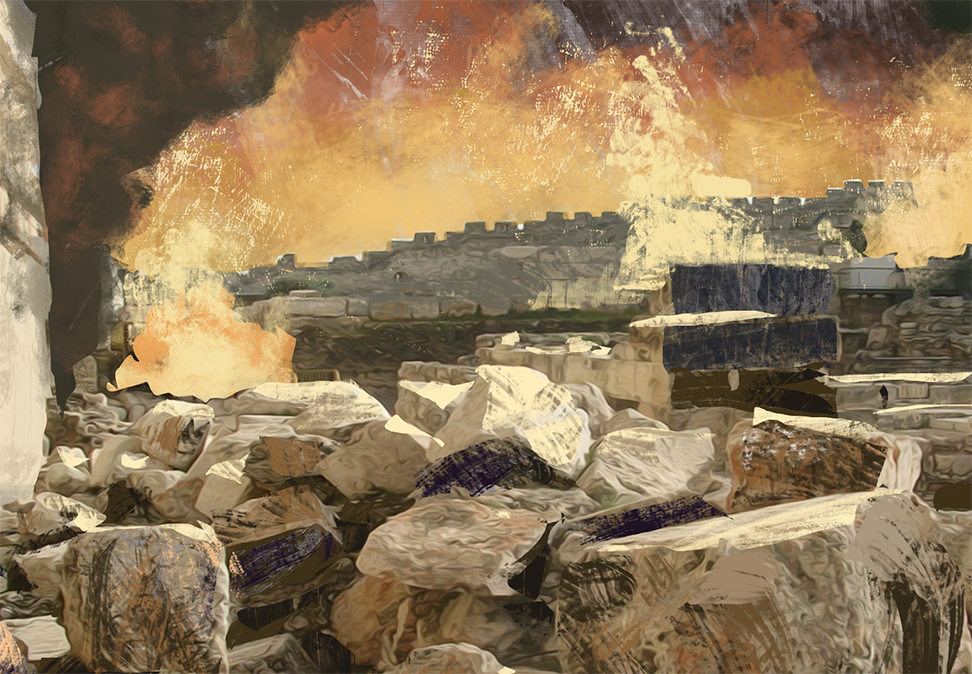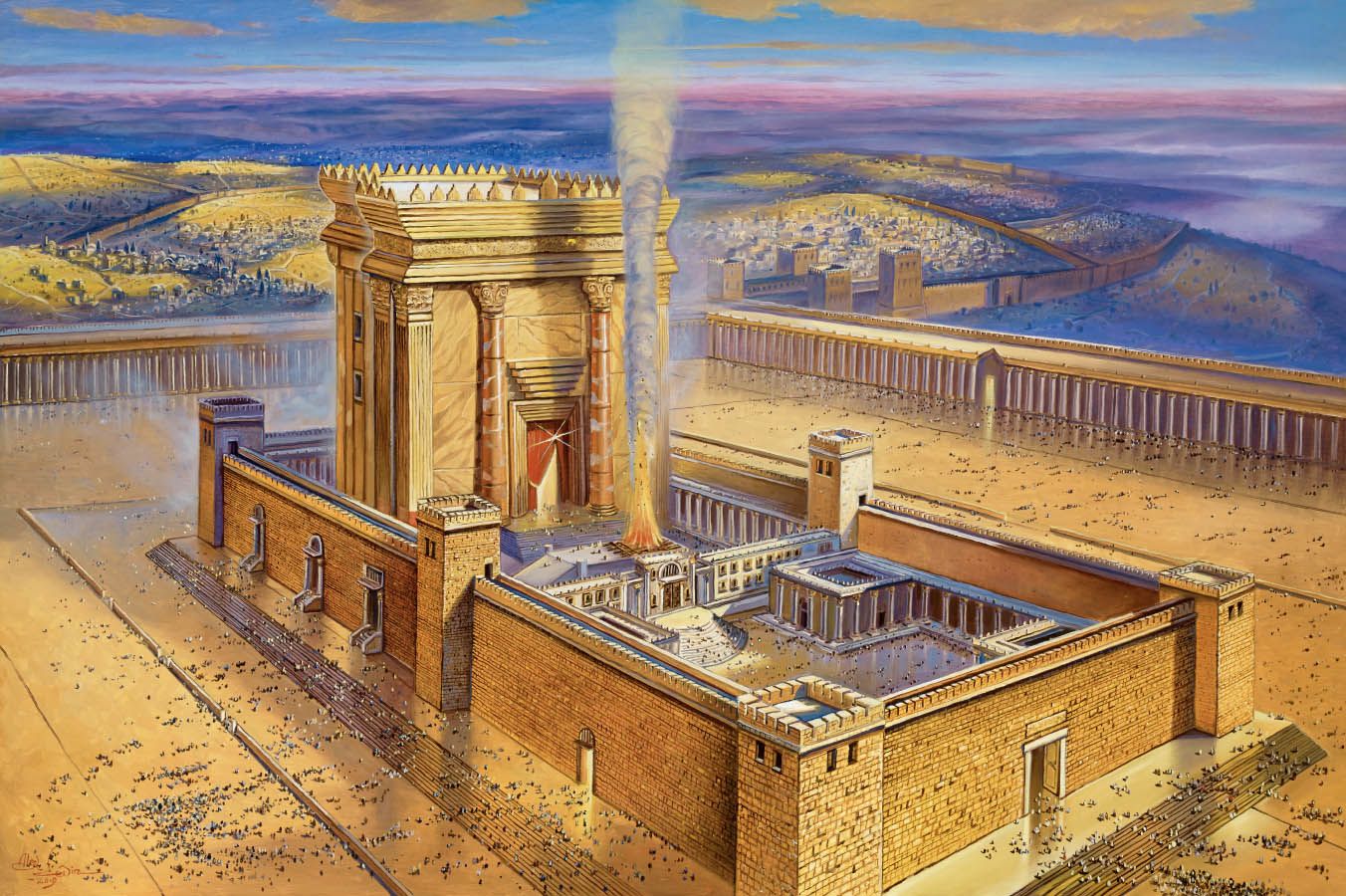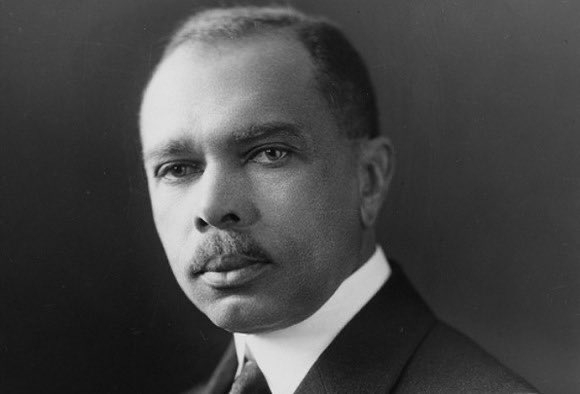“Lift Every Voice And Sing!”
Manage episode 450686511 series 1256505
 November 17, 2024: May God’s words be spoken, may God’s words be heard. Amen.
November 17, 2024: May God’s words be spoken, may God’s words be heard. Amen.
Well, that’s a cheery gospel, isn’t it? If you ever doubted if the church’s lectionary was in Advent in this time, this text ought to be perfectly clear about that, because Advent always begins with the second coming of Christ – with these end times passages.
But, I think we all can agree, it speaks to us now in a way that perhaps it hasn’t before. I mean, it could not have been lost on any of you the words of Jesus in the gospel this morning, and how strangely they echo through the centuries to our current circumstances.
The gospel passage begins with Jesus, having done some smack downs of the leaders inside the temple, now outside of it with his disciples. To fully get what this setting was

Jerusalem Temple Painting by Alex Levin
like for them, you gotta understand that the temple in Jerusalem was no small building. It was an enormous and beautiful structure – beyond anything these backwater disciples had ever seen. They were admiring the huge stones, and all the magnificence of the whole thing as they stood in its shadow. Jesus tells them that all that they are admiring will be destroyed – “not one stone will be left here upon another.”
Imagine how that must have sounded to them as they sat alongside this awe inspiring structure? Even though the first temple had indeed been destroyed, that was centuries earlier – far from their realm of possibility in their minds.
Now imagine how that sounded to those living at the time this gospel was written – when that temple was indeed a pile of rocks, with only the Western Wall remaining. To the disciples, it must have seemed impossible, but to those earliest listeners of this gospel, it was their reality. And both would want to know something even more important – where then would God be found?
Where is God if not in the temple?
Because in that time, for the Jewish people, and for most other religions as well, God was found in the temple – in God’s house. If that house was destroyed – what then? Where is God amidst the ruins?
This is a question that comes into the hearts and minds of even the most stalwart faithful in times like we are experiencing now – when the world seems out of kilter, dark, hateful, and dangerous. “Where is God?”
And then Jesus continues to teach his disciples, telling them that there will be liars trying to deceive them, and there will be “wars and rumors of wars,” that “nation will rise against nation, and kingdom against kingdom” of earthquakes and famine. Liars trying to deceive are indeed all around us right now, and “wars and rumors of wars,” famine and disasters – well, they haven’t been rumors for a long time for us now, have they. If only they were.
This is one of the scripture’s apocalyptic narratives. The Greek, apokálypsis means a lifting of the veil – a revealing. So what is Jesus revealing here? What is the good news for us in this time of darkness? Because Lordy, do we ever need some good news right about now, am I right? So many are asking “Where is God?” “What are we to do now?”
That is when we need to hear the last part of what he says in this passage. Jesus, says “This is but the beginning of the birthpangs.” Well, I certainly hope those birth pangs aren’t happening in a state where you can’t get reproductive healthcare, or you might just end up bleeding out and dead.
But staying with Jesus here, and remembering that this is a metaphor he is using, we get to that good news we yearn so very much for – then for those earliest followers standing in the rubble of a destroyed temple, and for us now. And maybe it would be helpful to be clear about why the temple Jesus is talking about was destroyed.
It came as the result of the first of three rebellions of the Jewish people against the Roman Empire. Prior to this, the Jewish faith had been temple centric – both Second Temple Judaism and the Samaritans, who had split off, and whose temple was another location. For Second Temple Judaism – this temple in Jerusalem was the center of festivals, the destination for pilgrims on high holy days, and Jewish political power. It also was still standing during the time of Jesus, and Jerusalem was the center of the early Christian movement, known then as “The Way.”
So, when this temple was destroyed by Titus during the Roman siege of Jerusalem, it was a cataclysmic moment for the Jewish people. Where was God? What are we to do? Where are we to go?
But, as Jesus said, this was not the end, but the beginning.
That is the way with things, isn’t it?
Even in the fortune telling world of Tarot, the death card doesn’t foretell of death, but of change, transformation, new life. It means something must end for this new path to begin.
And we know from our life in Christ that his death on the cross was not the end, but the beginning of new life – of resurrection. Through it, we came to know that light will always overcome darkness, love is stronger than hate, and death never has the last word.
And folks, this is good news for us today.
Because the truth is, these days since the election have left many of us barely able to stand in the rubble of broken dreams and shattered hopes. We are weighed down with the exhaustion of years and years of hate, violence, and lies, and the thought of even worse coming into view with this administration and the movement behind it, where cruelty seems to be the point, destruction the goal, and there are no remaining guardrails to at least curb their worst instincts.
I was thinking about this a bit yesterday when I attended the Union of Black Episcopalians (UBE) Clara Horsley awards breakfast. And one of the first things we did was sing what is known as the Black National Anthem – we call it in the church, Lift Every Voice & Sing. I remember being at Convention the previous weekend, and as we sang it in the Eucharist service, I looked over and saw Tom Reynolds sing this with his eyes closed – all three verses. This is what this hymn means to people of color, especially those in the church.

James Weldon Johnson
Written first as a poem by James Weldon Johnson, and later set to music by his brother, J. Rosamond Johnson, it is also something we need to hold close in our hearts now. I was struck yesterday by the words, particularly with the 2nd and 3rdverses, which read:
“Stony the road we trod, Bitter the chastening rod, Felt in the days when hope unborn had died; Yet with a steady beat,
Have not our weary feet Come to the place for which our fathers sighed? We have come over a way that with tears has been watered, We have come, treading our path through the blood of the slaughtered, Out from the gloomy past, Till now we stand at last Where the white gleam of our bright star is cast.
God of our weary years, God of our silent tears, Thou who has brought us thus far on the way; Thou who has by Thy might Led us into the light, Keep us forever in the path, we pray. Lest our feet stray from the places, our God, where we met Thee, Lest, our hearts drunk with the wine of the world, we forget Thee;
Shadowed beneath Thy hand, May we forever stand. True to our God, True to our native land.”
Do these words not resonate with us today? “Stony the road we trod, Bitter the chastening rod, Felt in the days when hope unborn had died…God of our weary years, God of our silent tears” Do we not feel some of the weight that these words describe?
And yet, this was written for a people of another era – suffering under Jim Crow in the reconstruction period. These words then became an anthem for those of the Civil Rights movement who were fighting and dying for the right to vote, to life without fear, to be fully included – fighting the police, the government, the Ku Klux Klan. They knew the “chastening rod,” and saw the “blood of the slaughtered.” But this is not a battle hymn calling for the destruction of enemies, but one of deep faith, asking God to keep us on the path, to lead us into the light. It reminds us of the God that is part of our weary years, and silent tears. God is not absent in these dark times, this hymn declares, but leads us forward to a new day. In fact, that is how the hymn opens:
“Lift every voice and sing Till earth and heaven ring, Ring with the harmonies of Liberty; Let our rejoicing rise High as the listening skies, Let it resound loud as the rolling sea. Sing a song full of the faith that the dark past has taught us, Sing a song full of the hope that the present has brought us, Facing the rising sun of our new day begun Let us march on till victory is won.”
Listen to that “we sing a song full of the hope that the present has brought us!” The present? What had it brought people of color in those days or even now? We don’t need to major in US history to know that we are still living in a world where people of color have not yet found true victory, nor have women, immigrants, or LGBTQ+ people- which means none of us have true freedom, true victory. And yet, within that present reality – the rubble of the stones of oppression, hate, and violence – we know that is indeed where hope is born, and new life begins.
The words of Jesus and of James Weldon Johnson, remind us that God is not absent in the darkest days, but as in similar times of the past, God lifts us up and walks alongside us, and works through us, God brings about new life that springs from the hope born in despair.
Just remember what happened to Judaism following the destruction of the temple. People fighting against oppression had lost. The temple was destroyed. Yet, the Jewish people continued, and the faith didn’t die, but transformed into what is known as Rabbinic Judaism, living into new life that spread throughout the world. As for the Roman Empire? Well, it collapsed upon itself, as evil & power mixed together tends to do.
This is what we need to hold in our hearts right now, because we are in living in what can feel like the end days of this democratic republic we call the United States, and it will take perseverance born of faith to move ahead even just a single step. This will not be easy. We know that the thing about pregnancy is that the birth pangs are painful. Yes, they signal the arrival of something new and exciting and wonderful – but the process to get there ain’t pretty and can make us downright sick at times. Yet we are not the first to be in this place. In the verses just after those we heard today in Mark, Jesus tells his followers that trouble is coming for them. Persecution came for native people and enslaved people in the colonization of this land we call our home. It came for those who have fought for freedom and justice all through the eternity.
Well folks, trouble is coming for us too, no doubt about that. And that is when we need to remember the words of the letter to the Hebrews we heard today. The author writes, “Let us hold fast to the confession of our hope without wavering, …And let us consider how to provoke one another to love and good deeds, not neglecting to meet together, as is the habit of some, but encouraging one another, and all the more as you see the Day approaching.”
Yes – let us not neglect to meet together – here in this place – to be nourished at this table by Christ and with one another – renewed for the work ahead. Because the birth pangs Jesus is telling us are here and they signal a time that will, like pregnancy, sometimes make us sick, sometimes wear us out, and may even be dangerous to our physical health. Yet we will not be deterred. We will welcome the stranger, feed the hungry, and in every other way – we will love our neighbor.
As part of our stewardship season, you will receive a gift blessed at the altar. These are not a thank you, but a way to prayerfully consider what this parish means to you, especially now as we walk together into the new hope born of this dark time. Today it is an ornament made of a part of a tree stump. The lines in a tree stump tell a story of the many years of the tree’s life – the droughts, injury, and harsh winters, as well as the times of abundant water, sunlight, and growth. Let it remind you to look beyond the present darkness and see the forest of the fullness of time. May the knowledge that we have been through eras worse than this, and rooted in God’s unconditional grace and love, together we will continue to grow as we serve Christ in the world.
Folks, we have been walking in death the past few days, and we need time to grieve, to rest, to get ready for what will lay ahead when we will rise in new life. Jesus is telling us that we are not children of empire, but children of God – and just as God is larger than any temple, we are part of something mightier and more powerful than any oppressive force this world has ever produced.
And so, together with our God, we will give birth to a new world – a world of peace where there is violence, freedom where there is oppression, love where there is hatred, life where there is death.
Until then, we will continue to lift every voice singing a song full of the hope that the present has brought us; and, shadowed beneath God’s hand, we will forever stand. True to our God, True to our native land.
Amen.
For the audio, click below, or subscribe to our iTunes Sermon Podcast by clicking here (also available on Audible):
https://christchurchepiscopal.org/wp-content/uploads/2024/11/Rec-001-Sermon-November_17_2024.m4aThe Rev. Diana L. Wilcox
Christ Church in Bloomfield & Glen Ridge
November 17, 2024
Pentecost 25 – Year B – Proper 28
1st Reading – 1 Samuel 1:4-20
2nd Reading – 1Samuel 2:1-10
3rd Reading – Hebrews 10:11-14 (15-18) 19-25
Gospel – Mark 13:1-8
The post “Lift Every Voice And Sing!” appeared first on Christ Episcopal Church.
11 odcinków




